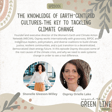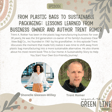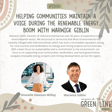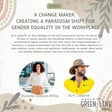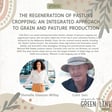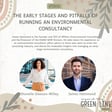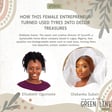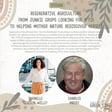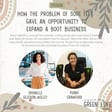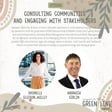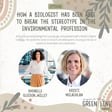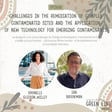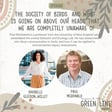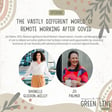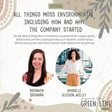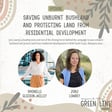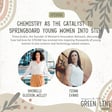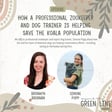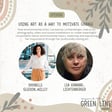
Environmental And Health Risks Of Microplastic Pollution
In this episode of Beyond the Green Line, Shonelle Gleeson-Willey talks with Dr Scott Wilson Chief Scientist at Earthwatch Institute Australia and the Research Director of the Australasian Microplastic Assessment Project. He's also an Honorary Senior Research Fellow in the Department of Earth as well as Environmental Sciences at Macquarie University.
In his role as Research Director for the Australasian Microplastic Assessment Project (AUSMAP), the Eureka Prize-winning citizen science initiative that researches microplastic pollution hotspots and its sources, he collaborates closely with stakeholders on finding practical solutions to microplastic pollution across Asia Pacific and Europe.
Scott has always wanted to make an impact on the environment and in his new role at Earthwatch Institute Australia, he now has a broader opportunity for more engagement and impact not only in Australia but globally.
His current focus is understanding the causes and impacts of plastics on the environment while collaborating with stakeholders and the community across the country.
In this episode, Scott addresses the need for educating and raising public awareness about a variety of environmental concerns, as well as a number of programs offered by Earthwatch Institute Australia for local communities to get involved in.
He also discusses his involvement in several other environmental projects, including the ClimateWatch program, a community-based venture aimed at documenting seasonal changes like plant flowering and seasonal animal migrations and educating communities on how these trends are affected by changing climate patterns.
Scott also discusses Earthwatch’s new Tiny Forest program, which uses Miyawaki Japanese botany to boost biodiversity through the dense planting of endemic vegetation in urban areas.
Scott also talks more about his work with the AUSMAP program dedicated to researching the environmental repercussions and the eradication of ‘per-and polyfluoroalkyl substances’ (PFAS) contaminants in the environment, and also his work with the Australian non-profit environmental organisation the Total Environment Centre, and its partnerships between universities and local communities.
Scott highlights recent studies on the increasing amounts of microplastics and other contaminants in the atmosphere, and also speaks in detail about how both positive and negative trends in exponential plastic manufacturing and use will affect the environment and particularly the ocean over the next thirty years.
Finally, Scott discusses his work with the Australian non-profit environmental organisation, the Total Environment Centre, and its partnerships between universities and local communities.
Thanks to Dr Scott Wilson for this important conversation. Please visit the Earthwatch website www.earthwatch.org.au for more information on its various projects and to find out how you can also play your part in helping the environment and making a difference in the world.
This episode of Beyond The Green Line was brought to you by Moss Environmental.
Subscribe to our podcast for your weekly invitation to join the conversation.
